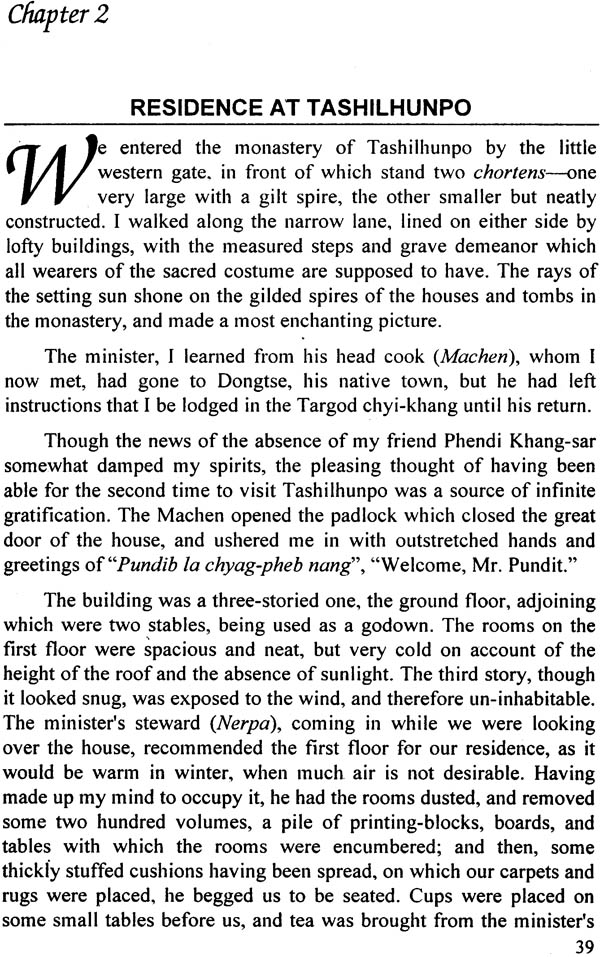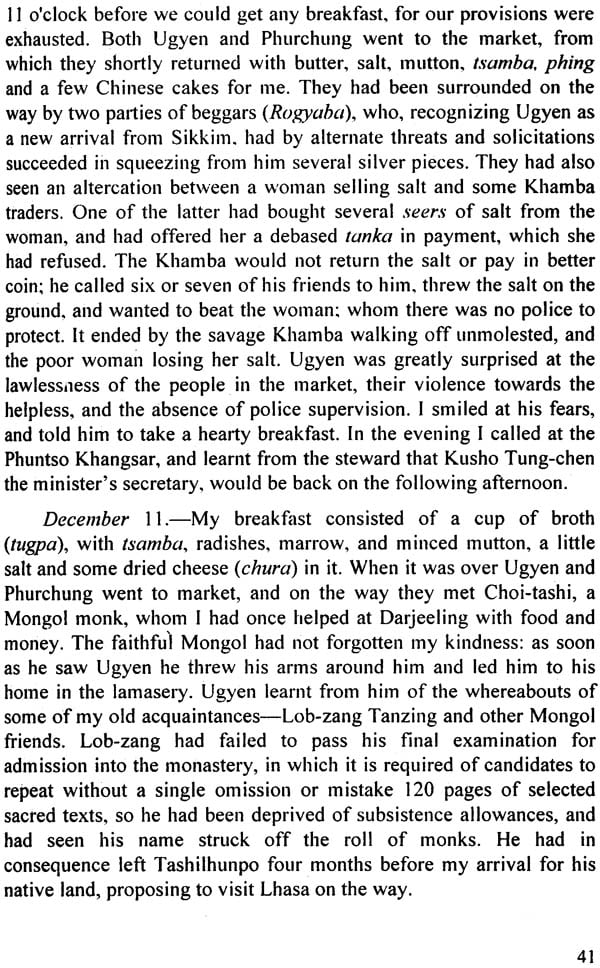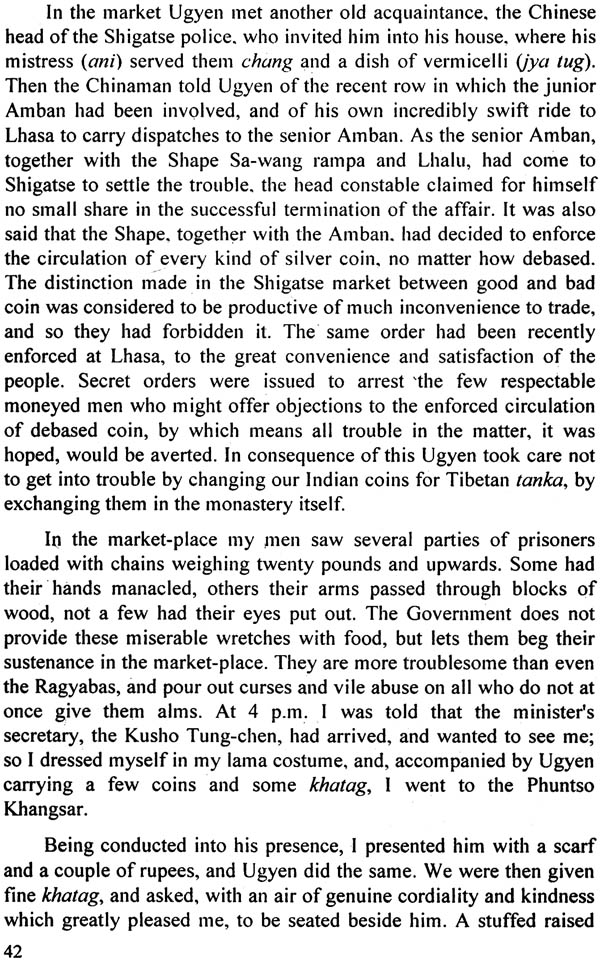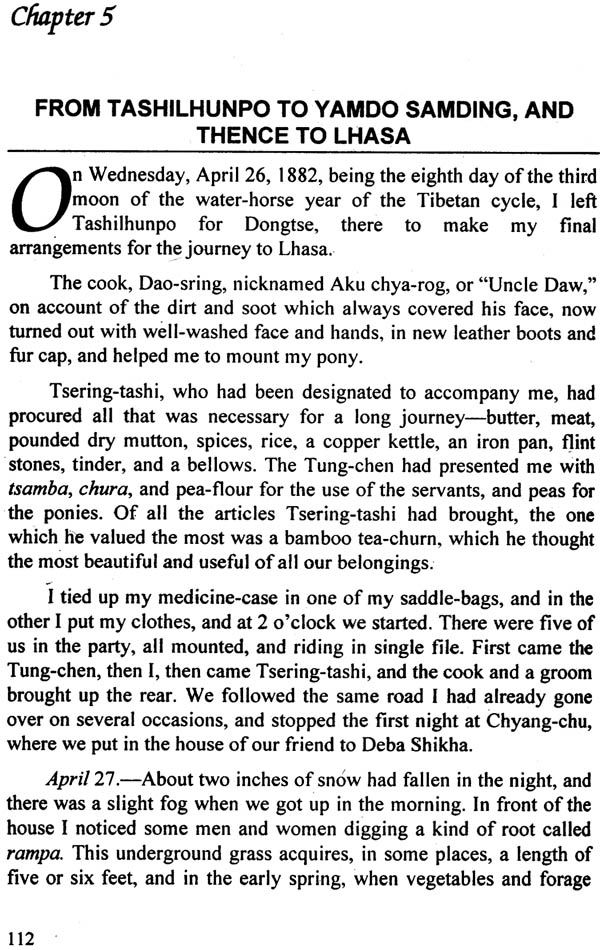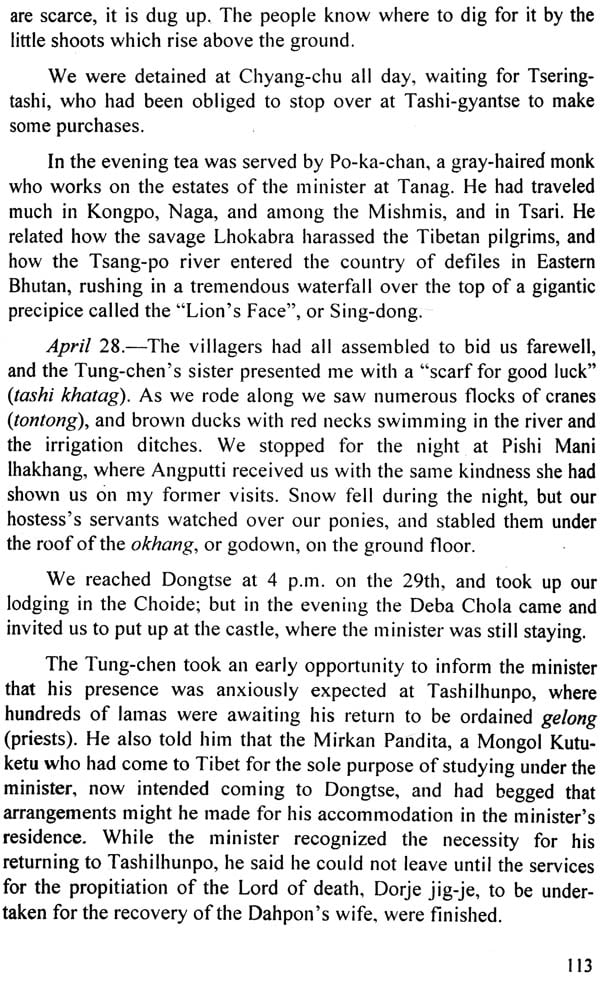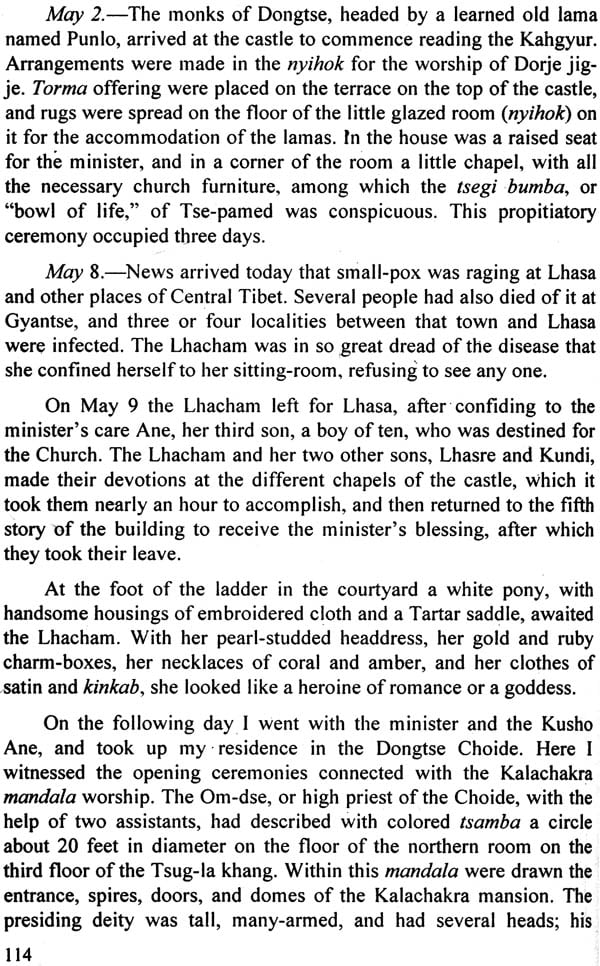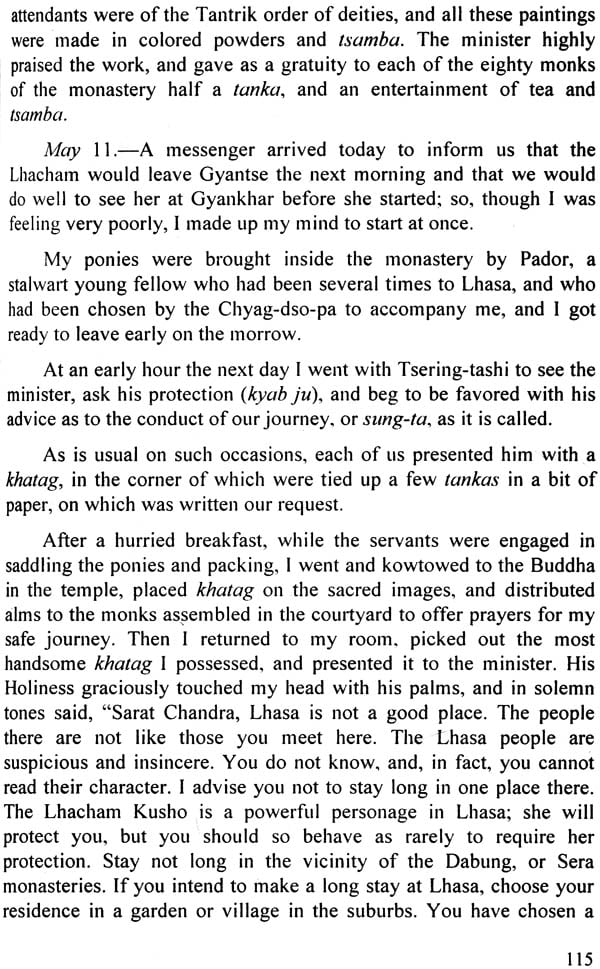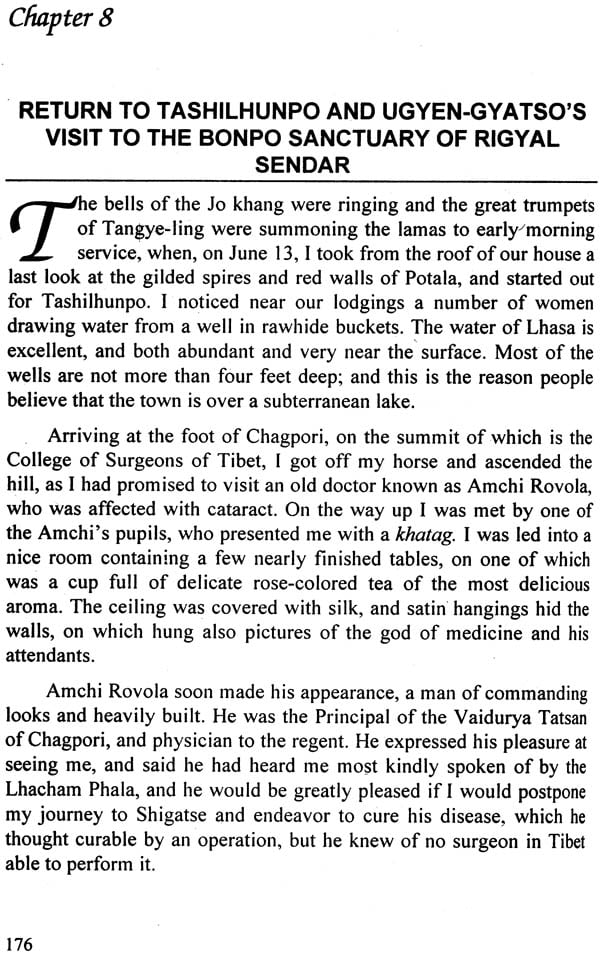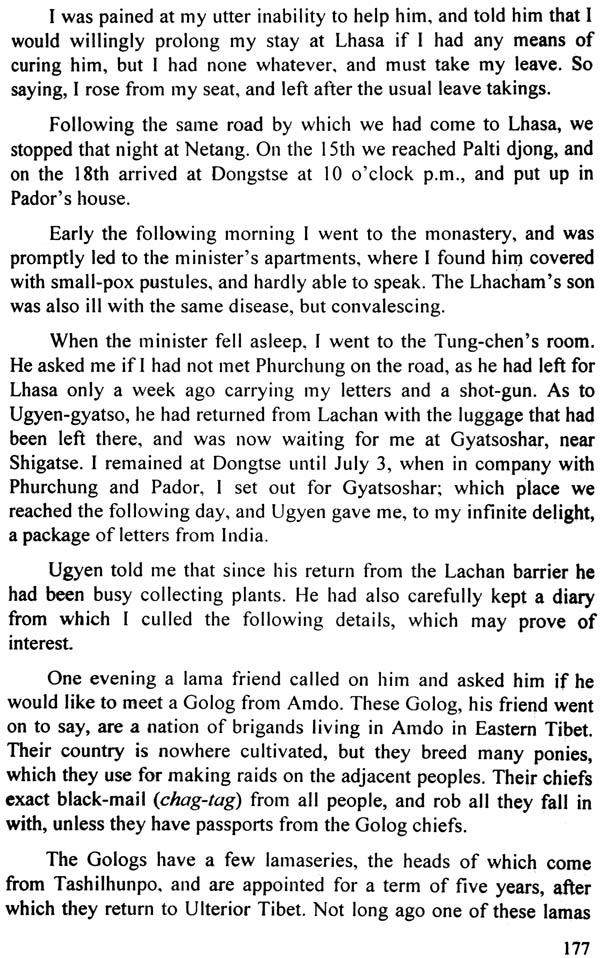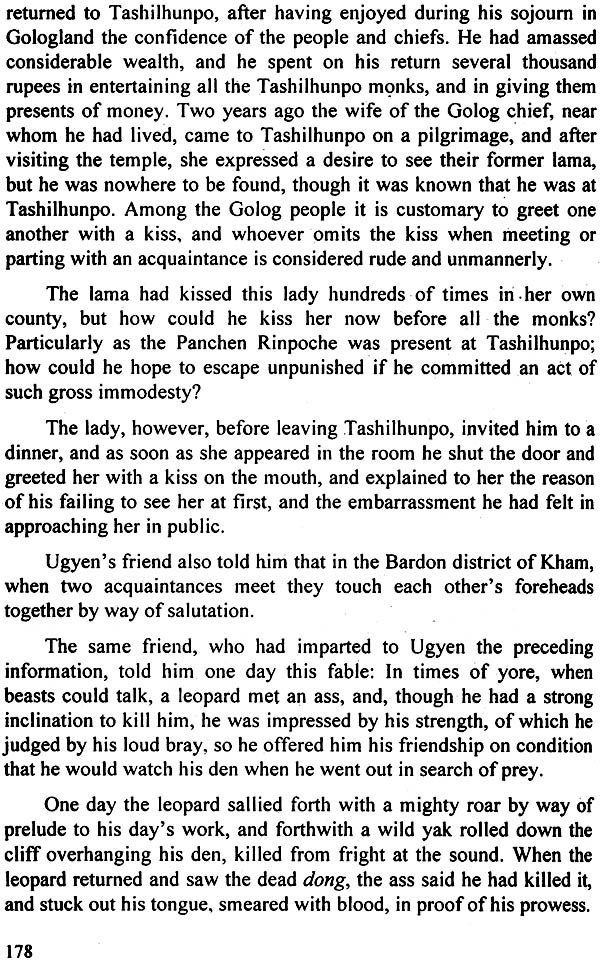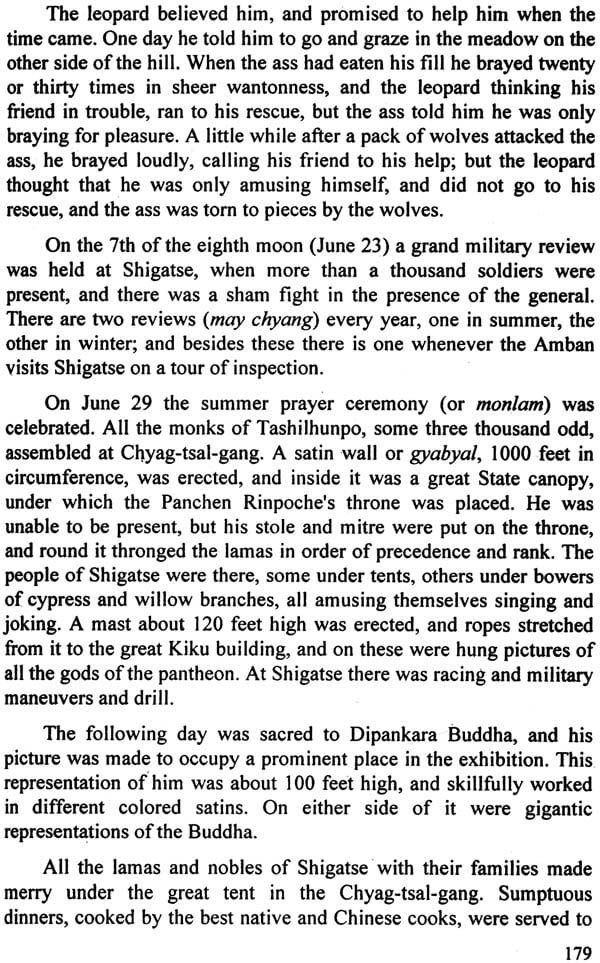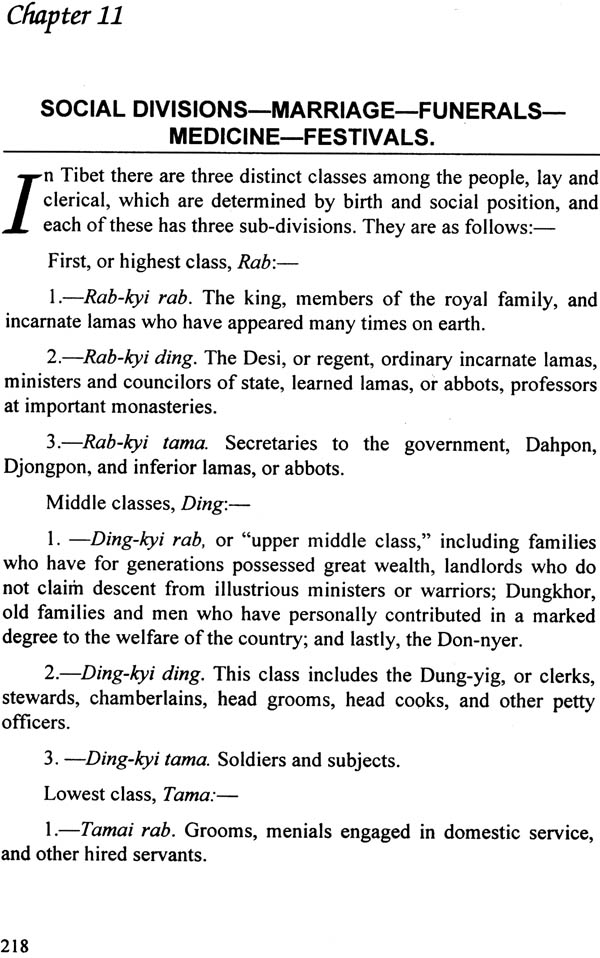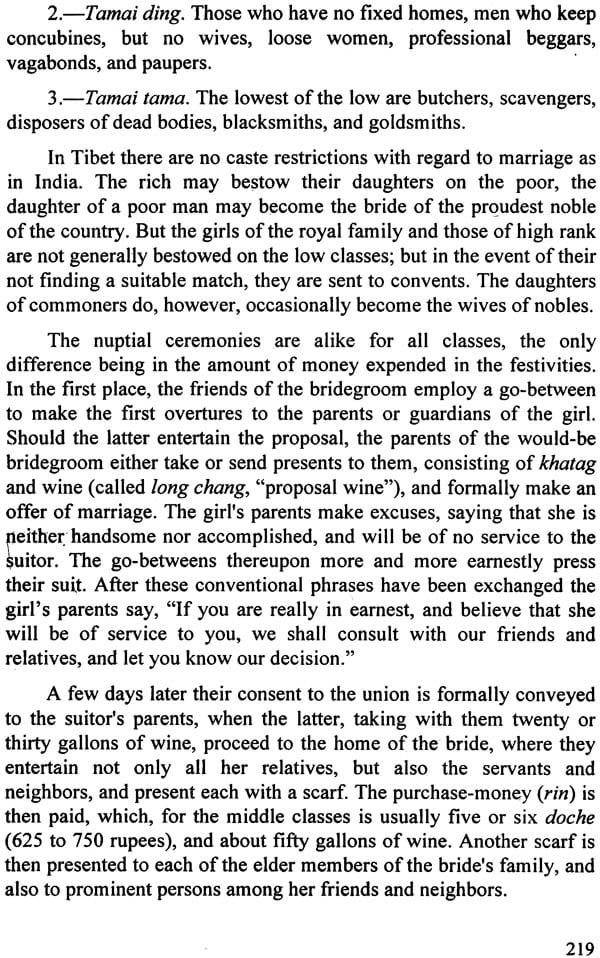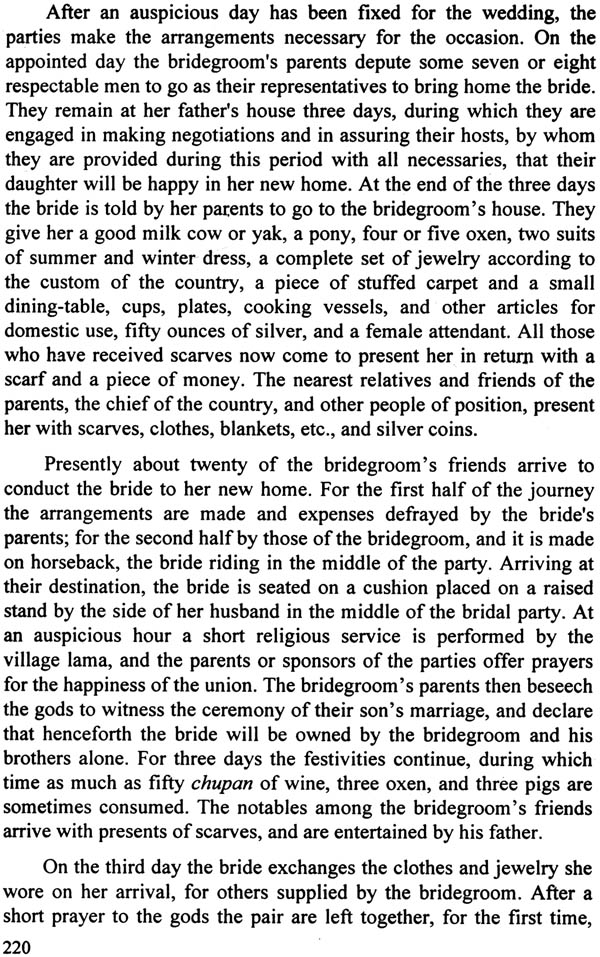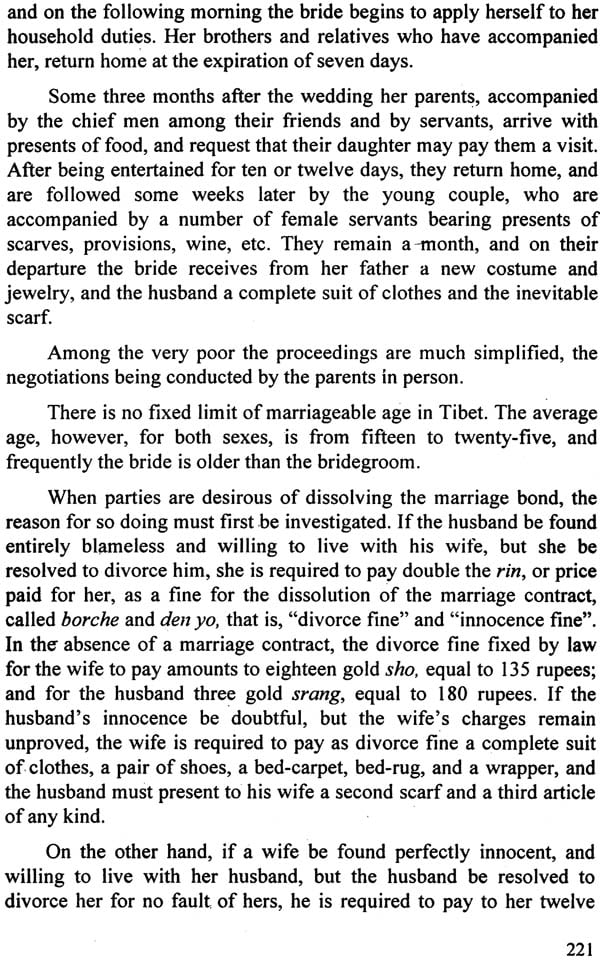
Lhasa and Central Tibet
Book Specification
| Item Code: | IDI019 |
| Author: | Sarat Chandra Das |
| Publisher: | Book Faith India |
| Language: | English |
| Edition: | 1998 |
| ISBN: | 8173030847 |
| Pages: | 261 |
| Cover: | Paperback |
| Other Details | 5.4"X 8.4" |
| Weight | 300 gm |
Book Description
Sarat Chandra Das was born in the town of Chittagong, in Eastern Bengal, in 1849, in a Hindu family of the vaidya, or medical caste.
He received his education in the Presidency College at Calcutta, where he become favorably known to sir Alfred Croft, the present Director of public Instruction of Bengal, whoever since has been his friend and guide in his geographical and literary, work and by whose representations to the Indian Government it became possible for him to perform his important journeys into Tibet.
While still in the engineering department of the college he was appointed in 1874 head master of the Bhutia Boarding School, just opened at Darjeeling by order of the Lieutenant- Governor of Bengal Sir George Campbell. Sarat Chandra at once applied himself with characteristic energy to the study of the Tibetan language, and established friendly relations with the Raja of Sikkim and many of the leading lamas in that country, to which he made several short trips in the succeeding years.
In 1878, lama Ugyen- gyatso, who was attached to his school as Tibetan teacher, was sent to Tashilhunpo and Lhasa with tribute from his monastery, and advantage was taken of this opportunity to ascertain whether permission could not be obtained from the Tibetan authorities for Sarat Chandra to visit Tibet. The lama was so fortunate as to obtain from the Prime Minister of the Panchen Rinpoche of Tashilhunpo an invitation for Sarat Chandra to visit that great center of Lamaist learning of which George Bogle and Samuel Turner have left as such interesting descriptions; and, so as further to insure his safety and justify his presence in the country in the eyes of the suspicious lamas and Chinese, the minister had the Babu's name entered as a student of theology in the Grand Monastery of that place. A passport was also brought Sarat Chandra by the lama, issued to him by the Prime Minister, by which a choice of roads to enter Tibet was given him and his safe conduct insured to Shigatse.
Armed with these credentials, Sarat Chandra set out for Tashilhunpo in June, 1879, accompanied by lama Ugyen- gyatso, and there he remained for nearly six months, the guest of the Prime Minister, with whose assistance he was able to make a careful examination of the rich collections of books in the great libraries of the convent, bringing back with him to India a large and valuable collection of works in Sanskrit and Tibetan. He also explored during this journey the country north and northeast of Kanchanjinga, of which nothing was previously known, nothing with great care observations of bearing and distances. Not the least valuable result of this journey was, however, the friendly relations which the traveler was able to establish with the liberal and powerful Prime Minister, who deeply interested in western civilization and its wonderful discoveries, of which he had learned much from the mouth of Sarat Chandra, requested him to come back again to Tashilhunpo, to instruct him further in the wonders of the west.
An account of this first journey was printed by the Bengal Government some time after the author's return, with a prefatory note by the traveler's friend, Sir Alfred Croft. As the route therein described in the same as that followed by the traveler in his second and more extended journey of 1881-82, and as the results of his studies in Tibet in 1879, as shown in this report, bear nearly exclusively on historical and religious subjects, it has been deemed advisable to omit it from the present publication, embodying in footnotes all such details as have been found in it bearing on the geography and ethnology of Tibet, and which are not in the later and fuller report.
The year 1880 was passed by Sarat Chandra at his home in Darjeeling, working on papers on the history, religion, ethnology, and folk- lore of Tibet, drawn from the data collected during his journey. These papers, most of them of great value to Oriental students, have since appeared in the Journal of the Bengal Asiatic Society and in that of the Buddhist Text Society of India, which Sarat Chandra founded in 1892, and of which he has since remained the secretary.
The discovery by Sarat Chandra in 1882 of the true dimensions and shape of Lake Palti, seemed to Sir Alfred Croft so important that in June, 1883, he dispatched the lama to cover the same Babu. This is successfully did, adding only to the latter's work a small portion to the south- east of the lake, but establishing the great accuracy of the previous survey. He also explored the Lhabrak (Manas) valley, and again visited Lhasa, returning to India by way of the Tang la and Chumbi valley, and reaching Darjeeling in December of the same year. A report of this work was prepared by Colonel, now Sri Thomas, Holdich, and appeared in the " Report of this work was prepared by Colonel the Explorations in Sikkim Bhutan and Tibet from 1856 to 1886," which was published in 1889 by the Trigonometrical Survey of India, and is frequently quoted in the notes to the present narrative.
Since then the lama whose services have been rewarded by the Indian Government with the title of Rai Bahadur, a silver medal and a grant of money has been employed as chief Tibetan translator to Government, serving in that capacity during the late Sikkim expedition, and has also given valuable assistance to Sarat Chandra in editing Tibetan texts.
Back of the Book
Lhasa and Central Tibet presents hitherto unknown religious and ethnological aspects of Tibet and once again establishes Sarat Chandra Das as one of the most profound and interesting authors on Tibet. During his explorations in Tibet, Das collected hundreds of rare manuscripts and from these sources he prepared number of papers throwing light on various aspects of I Residence at Lhasa Tibet. The book provides a vivid picture of the lifestyle of the people of Tibet, their customs, festivals, rites and rituals.
A wonderful work by one of the greatest pioneers of exploration and discovery in Tibet.
| Preface to the New Edition | vi | |
| Introduction | xi | |
| CHAPTERS | ||
| 1 | Journey from Darjeeling to tashilhunpo | 1-38 |
| 2 | Residence at tashilhunpo | 39-61 |
| 3 | Journey to Dongtse | 62-94 |
| 4 | Residence at tashilhunpo and preparations for journey to Lhasa | 95-111 |
| 5 | From tashilhunpo to yamdo samding and thence to Lhasa | 112-134 |
| 6 | Residence at Lhasa | 135-153 |
| 7 | Government of Lhasa-customs festivals etc. | 154-175 |
| 8 | Return to tashilhunpo and ugyen gyatso's visit to the bonpo sanctuary of rigyal sendar | 176-191 |
| 9 | Funeral of the Panchen rimpoche visit to the great lamasery of samye and to yarlung | 192-210 |
| 10 | Visit to sakya and return to India | 21-217 |
| 11 | Social division marriage funerals medicine festivals | 218-235 |
